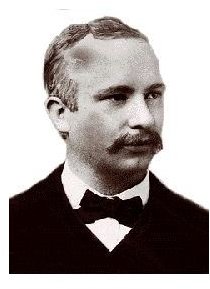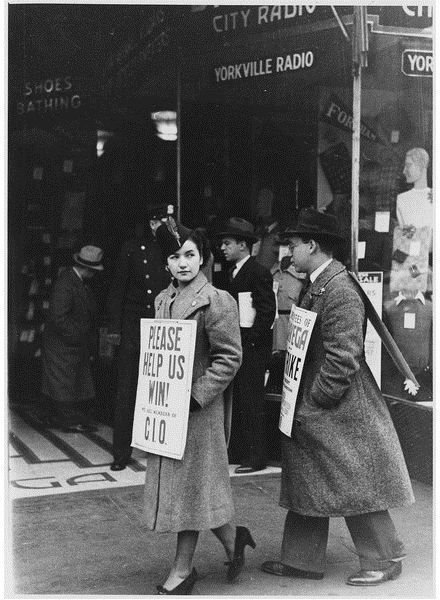The Origins of Labor Day: How It Began
Life in the Industrial Revolution
The mid to late 1800s were a tough time to be working-class in America. Twelve-hour days and seven-day work weeks were common. Pay was low. Conditions were unsafe. Breaks and workers’ compensation were non-existent. If you got hurt on the job, it was your fault and your problem. You’ll be paid again when you’re ready for labor, bosses said. Children as young as five worked in factories for a fraction of adult wages. All this toil and struggle would allow a family to barely eat and keep a shabby roof over their heads.
The industry barons had all the power. They owned the buildings and factories. They paid the wages. If you wanted to work, you had to work for them. If you didn’t want the job, someone else did.
But the workers had numbers on their side. If they all stood together and refused to work until conditions changed, they held power. If no one showed up to work, the factory did nothing and the owner had to listen.
Standing Together
In the 1870s and 80s, labor unions were growing stronger. Strikes were becoming common and violent. Employers would aggressively punish workers for organizing. Workers would fight those who tried to take their jobs during strikes. Something had to give.
September 5, 1882, the Central Labor Union of New York City gathered 10,000 workers to march on Union Square. They demanded higher pay, shorter hours and safer workplaces. CLU representatives urged other labor unions to follow their lead. In 1883, others around the country joined Central in a demonstration of unity. At this point, workers were taking an unpaid day off to protest. Unions pushed local governments to make a paid holiday to celebrate the American worker.
In 1885 and 1886, various cities around the country declared the first Monday in September to be a workmen’s holiday. February 21, 1887, Oregon became the first state to recognize Labor Day. Colorado, Massachusetts, New Jersey and New York followed that year.
Not until 1894 would the United States make Labor Day a national holiday. It would take a dramatic nationwide event. May 11 of that year, Pullman Palace Car Company of Chicago went on strike to protest wage cuts and the firing of union leaders. June 26, American Railroad Union joined in the strike. Railroad traffic throughout the country was crippled. The federal government sent troops to Chicago to break the strike. Over a dozen workers were killed.
In the aftermath of this bloody dispute, Labor Day was put into legislation and workers’ rights took front stage. Shorter work days, child labor, mandated breaks, minimum wages and workplace safety would all be addressed by the government in coming years.
Who Was the Founder?

Peter J McGuire was a political activist and trade unionist. As a member of the Committee for Public Safety, he was arrested after refusing to leave the Police Commissioner’s office after his parade permit was denied. He joined the Greenback Labor Party and lobbied for an eight hour work day. He worked as a carpenter and helped unionize other workers, creating the United Brotherhood of Carpenters and eventually the American Federation of Labor. May 12, 1882, he stood before the Central Labor Union and called for “a street parade which would publicly show the strength and esprit de corps of the trade and labor organizations.” For many years, he was considered to be the father of Labor Day.
At the same time, Matthew Maguire was a major figure at the Central Labor Union. By leading several strikes in the 1870, he had pushed the struggles of workers into the public consciousness. He was riding at the head of the parade September 5. Grover Cleveland, after signing Labor Day into law, stated “the souvenir pen should go to Alderman Matthew Maguire… who is the undisputed author of Labor Day as a holiday.”
Why was Peter given credit for the holiday, and not Matthew? Ted Watts’ book The First Labor Day Parade reports that Matthew’s socialist politics were too radical even for his union comrades. Samuel Gompers, who worked closely with both men, did not want Labor Day associated with Matthew’s ideas, so in an 1897 interview he indicated Peter as the founder.
Modern Labor Day
With overtime pay, Social Security, workmen’s comp, OSHA and the AFL-CIO, the USA is a much safer place to work than it was over a century ago. Labor Day has become the last great weekend of summer before school starts again. Americans celebrate the holiday in a number of ways, mostly unconcerned with work. Many cities around the nation sponser festivals and special events. Some examples of this are an NBA-established 3-0n-3 basketball tournament in DC. There’s also the Harley Davidson Anniversary in Milwaukee, Wisconsin, Chicago Jazz Festival and many more events.
This labor day, take some time to remember that workers’ rights, at home and around the world, are still important things to fight for. The tradition started by the Central Labor Union still occurs annually in New York City. Worldwide, workers are still being exploited, particularly children. Learn more by visiting The Child Labor Coalition or the International Labour Organization.
References
- The Real Maguire - Who Actually Invented Labor Day? - from U.S. Department of Labor website
- The History of Labor Day - from the website of the U.S. Department of Labor
- Photos in the public domain via Wikimedia Commons
- Labor Day - from History.com
This post is part of the series: Curious Customs: Stories Behind Popular Holidays
We take holidays for granted in that we celebrate them according to tradition, but where did the tradition come from? Why do we buy a Christmas tree? Why are hearts popular on Valentines? What is the reason we decorate pumpkins for Halloween? Find out in this series.
- The History of Valentine’s Day
- The Origin of Presidents’ Day: Who Are We Celebrating?
- Who Was St. Patrick?
- Origin of April Fool’s Day
- The Science, History and Culture Behind the Spring Equinox
- Curious Customs: Stories Behind Popular Holidays—Passover Seder
- Curious Customs & Stories Behind Mother’s Day
- History & Origins of Labor Day
- The Origins of Common Good Luck Traditions
- Three Superstitions and Their Origins
- The History of the Olympic Games
- What is All Hallows Eve? The Customs and Origins of Halloween
- The Origins of Thanksgiving: The Whole Truth and Nothing But the Truth
